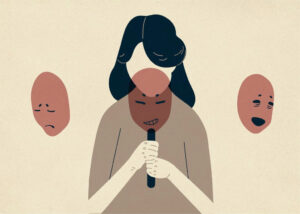Everyone has days that are more challenging, sad, and anxiety-producing than others. However, depression stands in stark contrast to the normal ebb and flow of everyday life, it is something different altogether. Far more forceful and long-lasting than the “blues,” the feelings associated with depression are intense, pervasive, and often directly interfere with someone’s daily routines and relationships.
Defining Depression
Depression is a mental health condition that affects more than 20 million people in the United States and can make it difficult — or even feel downright impossible — to focus at work or school, connect with family members and friends, or engage in social situations.
An estimated 11 million adults ages 18 or older in the United States had at least one major depressive episode with severe impairment, according to the National Institute of Mental Health. This number represents 4.5% of all US adults.

What Depression Feels Like
There’s a wide range of feelings that accompany depression and they can vary from person to person. Whether it’s helplessness, hopelessness, a loss of interest in your usual hobbies, sadness, guilt, or worthlessness, the disorder can make something as seemingly innocuous as getting out of bed each morning a challenge.
As a result, prolonged depression can be debilitating and, if left untreated, can have a serious impact on someone’s quality of life, including their physical health.
Those struggling with depression may feel irritable, have difficulty sleeping, experience dramatic changes in weight, and wrestle with fatigue.
Depression can also lead to a more isolated existence. The person struggling may feel the challenge is far too much for anyone else to bear, even loved ones. Not surprisingly, this tendency to “go it alone” can be detrimental to mental health and in some cases can lead to recurring thoughts of death or suicide.
Hope for Those Struggling With Depression
It’s common for anyone facing depression to want answers about the disorder’s origins. While there aren’t clear-cut explanations on the cause of each specific case, researchers and healthcare professionals agree that it’s never because of a single factor.
Depression is often attributed to a variety of factors such as genetics (a family history of depression), chemical changes in the brain, and/or environmental factors. Traumatic experiences can also contribute to the development of psychiatric disorders. Working with a trained healthcare professional and a prioritization of mental health is important to help understand the best way to move forward.
Featured Articles
Reach Out for Help
If you or someone you care about is struggling with depression and a co-occurring eating disorder, please know that while it may seem overwhelming, there is hope. At The Meadows Ranch, our competent, compassionate clinicians and therapists specialize in treating not only depression’s symptoms but the underlying causes.
We help patients heal and find freedom from debilitating depression and learn the skills necessary to build and fulfilling relationships.
Call 866-332-7381



